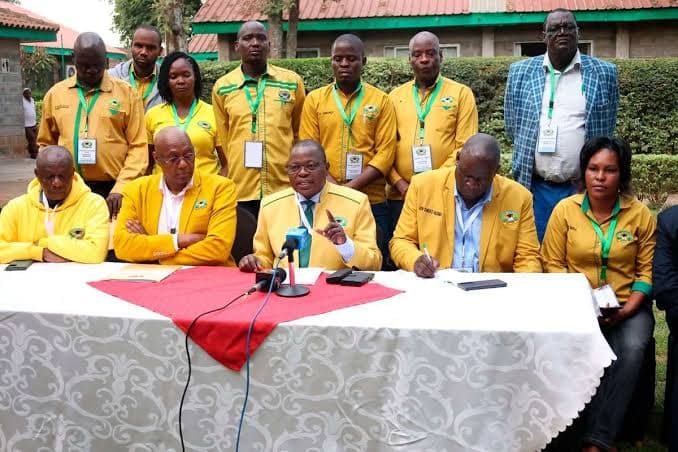We're loading the full news article for you. This includes the article content, images, author information, and related articles.
Explosive testimony in the Shakahola massacre trial alleges direct police inaction, as a grieving father recounts how officers at Lango Baya Police Station allowed cult leader Paul Mackenzie to leave with his children, intensifying questions of state complicity.

MOMBASA, Kenya – In a deeply emotional hearing at the Mombasa High Court on Monday, November 10, 2025, a key witness in the Shakahola massacre trial testified that Kenyan police officers stood by and watched as cult leader Paul Nthenge Mackenzie abducted his children. Safari Katana Yaa, 66, told the court that his final, desperate attempt to save his family was thwarted by the very authorities he had turned to for help.
“Mackenzie boldly appeared with all five of my children and drove off with them as police watched,” Katana recounted, describing his last encounter with his family at the Lango Baya Police Station. His testimony, delivered before Lady Justice Diana Kavedza Mochache, adds a powerful and personal voice to a growing body of evidence suggesting systemic failures and potential complicity by security services that enabled the deaths of more than 429 people.
Katana detailed a harrowing multi-year struggle to retrieve his family from Mackenzie’s influence. He explained how his children were drawn into Mackenzie's Good News International Church around 2017, abandoning school and selling property to follow the preacher’s doctrine that education was sinful. His efforts to intervene were repeatedly met with hostility, culminating in his own arrest after he confined two of his grandchildren at home to prevent their return to Shakahola.
He testified that while he was locked in the police cells, Mackenzie and his followers arrived, took the children, and left. Katana was later released after his wife paid KSh 15,000, but he was never formally charged with a crime. “I had done everything a father could,” he stated, overcome with emotion, “but the people I trusted most to protect my family had failed me.”
Katana's testimony corroborates previous evidence indicating that state authorities had multiple opportunities to intervene long before the mass graves were discovered in April 2023. Court records and witness accounts show Mackenzie had been arrested several times on charges related to his radical teachings as early as 2017 but was repeatedly released.
In a particularly damning revelation from other court sessions, it emerged that in November 2022, months before the tragedy was uncovered, police in Malindi received a whistleblower tip via a Facebook post detailing the killings. Instead of investigating the claim, a DCI officer, Sergeant Joseph Yator, testified he was tasked with helping Mackenzie identify the author of the post, which the cult leader had reported as defamatory. This has been cited by both a Senate commission of inquiry and the Kenya National Commission on Human Rights (KNCHR) as evidence of “gross abdication of duty and negligence” by security officers.
The Shakahola massacre has forced a national reckoning on the regulation of religious organizations and the accountability of Kenya’s security and judicial systems. Mackenzie and 94 co-accused face a battery of charges across multiple trials, including murder, manslaughter, terrorism, and child torture. The prosecution has presented dozens of witnesses, including protected children who gave harrowing accounts of being forced to fast and of burial rituals disguised as 'weddings' to Jesus.
In response to the public outcry, President William Ruto’s administration appointed a task force to review laws governing religious bodies, which has recommended tighter regulations. The government also plans to acquire the 800-acre Shakahola forest to establish a national memorial site for the victims. However, for families like Safari Katana Yaa’s, these measures come too late. His testimony serves as a stark reminder of the human cost of institutional failure and the urgent need for justice and accountability to prevent such a tragedy from ever recurring. The trial continues, with hearings scheduled to resume in early December.
Keep the conversation in one place—threads here stay linked to the story and in the forums.
Sign in to start a discussion
Start a conversation about this story and keep it linked here.
Other hot threads
E-sports and Gaming Community in Kenya
Active 9 months ago
The Role of Technology in Modern Agriculture (AgriTech)
Active 9 months ago
Popular Recreational Activities Across Counties
Active 9 months ago
Investing in Youth Sports Development Programs
Active 9 months ago